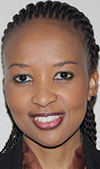

The Private Security Industry Regulatory Association (PSiRA) has proposed updated security training standards for the private security industry and consumers in South Africa. PSiRA says the current training standards are old and outdated.
The regulations come after consultations with the private security sector stakeholders. These consultations have been met with both positive and negative objections by concerned players. However, PSiRA insists that these new updated security standards are a required to better the industry.

“The existing training standards are based on old curriculum, which is also not aligned with the National Qualifications Framework (NQF) as contemplated in the National Qualifications Framework Act, 2008. In terms of section 23(3) of the PSiRA Act, all natural persons applying for registration must meet minimum training requirements in order to register,” said deputy director at PSiRA, Mpho Mofikoe.
Registered security officers must also meet minimum training requirements to render certain types of security services. In recognising the need for training requirements for the private security industry, regulations were promulgated in terms of the repealed Security Officers’ Act, 1987, namely the Training of Security Officers Regulations, 1992. These regulations provided for the establishment of a Security Officers’ Board Training Committee (represented by the private security industry) which was responsible for determining different training levels for the different categories or grades of security officers.
In addition, this training committee also determined the main courses and minimum requirement modules governing certain competencies, which were published as board notices. Further, the Training of Security Officer Regulations, 1992 made provision for the accreditation of training establishments and instructors to present the training courses accredited with the previous Security Officers Board and currently PSiRA.
In support of the scope of regulation as contemplated in the repealed Security Officers Act, 1987 minimum training standards were published in regulations or board notices for the guarding sector (Grades E to A), assets in transit, reaction services, special events, and dog handlers (DH1 to DH5)”
Following on from the promulgation of the Private Security Industry Regulation Act, (Act No. 56 of 2001), the Training of Security Officer Regulations, 1992 and any board notices published in respect of minimum training standards for the private security industry remained in force in terms of the transitional provisions as contemplated in section 44 of the PSiRA Act. However, these training regulations did not provide minimum training standards for the increased scope of regulation and the new categories or classes of security service providers that are required to be registered in terms of the PSiRA Act.
In terms of the PSiRA Act, persons rendering the following services are required to register:
• Guarding sector: static guarding, car guards, in-house guarding, close protection officers, response security, assets in transit, event security.
• Manufacturers, importers and distributors of monitoring devices.
• Private investigators.
• Security trainers.
• Control room operators (monitoring signals from electronic security equipment).
• Locksmiths.
• Persons managing, controlling or supervising any of these security services.
• Installers of the different security equipment as defined.
• Persons repairing/servicing the different security equipment as defined, and
• Persons giving advice on security services, including the use of the different security equipment as defined.
“There is therefore a need to determine minimum training standards for all the different categories or classes of security service providers,” she said.
According to PSiRA, it is the expectation of the authority that the NQF-based programmes will bring about the necessary coherence and impetus to ensure a drive for better qualified security service providers for all the different categories or classes. These proposed standards have been well received by the security industry, while there were a few concerns around “responsibility for the authority” and “cost and time.”
“The industry is demanding that PSiRA takes full responsibility of the accreditation process and quality assurance due to the current frustrations they have been experiencing from SASSETA. Lack of industry expertise and current administrative challenges from SASSETA have created serious delays with the process of quality assurance,” noted Mofikoe.
The authority is currently addressing this challenge and solutions have been developed. The Draft Training Regulations has made provision for recognising entry-level training for purposes of registration, based on the theoretical component of the training standards and not full competency. This will allow shorter learning time to allow applicant security officers to be registered and gain access to employment while they complete the practical component of their skills programme.
Another concern raised by the industry is with regard to the cost and time. As far as the costs and the learning material are concerned, the authority will ensure a review of these aspects through stakeholder consultations. “We are confident that this will result in a reduction of learning time and costs,” she said. “There has been an extension of the consultation deadline.”
The impact of the proposed review is twofold, namely the impact on the existing training providers as well as the impact on the applicant security service provider. One of key factors that the PSiRA has embarked on to assist with the transition is capacity-building workshops for training providers. The authority will also be implementing train-the-trainer sessions/workshops as part of enhancing the training providers’ capacity to deal with the transition and any challenges thereof.
PSiRA maintains that every element of the proposed training standards “is intended to support the authority’s objective in ensuring a competent and professional private security industry for the long-term interest of the state, the public and consumers, as well as the private security industry itself.”
For more information contact PSiRA Mpho Mofikoe, [email protected], www.psira.co.za
| Tel: | +27 12 337 5500 |
| Email: | [email protected] |
| www: | www.psira.co.za |
| Articles: | More information and articles about PSiRA (Private Security Ind. Regulatory Authority) |

© Technews Publishing (Pty) Ltd. | All Rights Reserved.